- Home
- Kay Hooper
Chill of Fear Page 2
Chill of Fear Read online
Page 2
Quentin glanced at him, then shrugged. “I’ve never been able to use my ability as an investigative tool. It’s never been under my control in any sense.”
“We’ll teach you how to exert whatever control is possible. Teach you how to focus and channel your abilities. How to use them to aid an investigation.”
“Will you? Can you do it?”
Bishop smiled faintly at the direct challenge, but rather than answering looked out over the valley and put all his concentration into opening up and strengthening his “normal” five senses. It was like having a blurry image snap suddenly into focus, while in the background faint sounds became louder, clearer, and he could smell the roses far below.
He wasn’t about to admit to Quentin that the term coined for what he was doing was using his “spider sense,” not after the other man’s mocking reference to comic books.
“Bishop—”
“Wait.” He reached out farther, and heard bits of conversation from the searching officers and hotel employees, words and phrases, disjointed and unimportant. Beneath the scents of roses and other flowers and freshly mown grass, he caught the savory odors of cooking from the hotel’s kitchen, and someone’s tangy perfume or aftershave, and the warm, dusty scents of horses and hay and leather. The razor-sharpness of what he saw blurred as though a zoom lens sought distant objects and struggled to bring them into focus.
Bishop pushed harder, reached farther.
The colors washed into one another, the scents blended unpleasantly into a thick miasma that caused his stomach to churn, and the sounds and voices he heard were a cacophony pounding inside his head—
“—or we could check down by the creek—”
“—of course I wasn’t flirting with him—”
“—the guest in the Orchid Room needs—”
“—empty stables she might have—”
“—only a matter of time before we have to drag the streams and lake—”
“Daddy? Where are you? I’m afraid—”
It’s coming.
“Bishop!”
He looked down at Quentin’s hand on his arm, then at the other man’s face, his vision blurry for a heartbeat or two before it cleared. And he could hear only the distant sounds that were normally audible from this height. Smell only the distant, pleasant scents of a summer afternoon.
He didn’t have to ask to know that he had been too still and too silent for too long, and had to mentally shrug off the lingering chill he felt. He wondered if he had been able to tune in to his surroundings with such unusual strength because there was, as Quentin believed, something different about this place. The coldness Bishop had sensed was at least an indication that he might be right.
But there was little time to ponder that.
“Can you ride?” he asked, unsurprised by the slightly hoarse sound of his own voice.
Frowning, Quentin said, “Yeah, I can. What the hell did you just do?”
“I . . . tuned in to this place. Let’s go.”
Quentin followed, still frowning, and within ten minutes they were aboard two of the hotel’s horses and following one of the trails that wound up into the mountains. Bishop led the way, not saying much but intent, concentrating, as though listening to some inner voice that was guiding him.
Quentin wasn’t really surprised to see that Bishop rode well; he had a strong hunch that the other man was the sort who would master whatever he chose to no matter how much effort or time was involved.
Which, Quentin knew, undoubtedly included his psychic abilities.
But what had he done back in the tower? Whatever it was, it had been an actual, physical effort; his eyes had dilated so much that for an instant, gazing into them, Quentin had thought of ice rimming a deep, black pool. Unsettling, to say the least. And what had Bishop said—that he had tuned in to this place? What the hell was that supposed to mean?
He urged his horse up beside the other man’s despite the narrowness of the trail, and said, “Do you know where she is, or are we just out for a nice afternoon ride?”
“I know where she is,” Bishop replied calmly.
“How?”
“I heard her.”
Quentin digested that for a moment. “From the tower? You heard her way up there?”
“Yes.”
Quentin glanced back at the considerable distance they had already covered, then said almost involuntarily, “Bullshit.”
“The mind,” Bishop said, “is a remarkable tool. And so are the senses. The usual five, plus whatever extra ones we’re lucky enough to have.”
“Bishop, you’re out of your mind—and all your senses.”
“We’ll see.”
Quentin dropped back but continued to follow Bishop, telling himself that he was just humoring a lunatic. But the quiet voice in his own mind that had so often told him where to look or what to ask or what would happen next was telling him that little Belinda was going to be found, and that it would be because Bishop had, somehow, heard her.
“Belinda?”
“Go away,” she mumbled, blinking in the brightness of Quentin’s flashlight. She was squeezed back into a corner near the old rock fireplace, but seemed to do her best to make herself draw even farther away, to make herself smaller. “Don’t hurt me.” Her voice was thin and shaky, the plea ending in a hiccuping sob.
“It’s okay, Belinda, you’re safe now. We’re going to take you back to your parents.” Quentin tried to make his own voice soothing, but the child’s terror was palpable and he dared not reach out for her.
“Let me try,” Bishop said.
Quentin gave way willingly; there was very little space inside the ramshackle building that might once have been a house of sorts, and between them he and Bishop were probably looming over the sobbing child, he thought. She was obviously dazed and confused, though appeared unhurt barring a small cut on her forehead.
What Quentin couldn’t understand was how she had managed to get way up here, much farther from The Lodge than a child her age should have been able to travel in the time allowed. Under her own power, at least.
“It’s okay, Belinda,” Bishop said, softly repeating Quentin’s assurances. But he didn’t hesitate to reach out and gather the child into his arms.
To Quentin’s surprise, the little girl not only didn’t resist or protest, but actually visibly relaxed, and stopped crying. She even looked a little sleepy, as if exhaustion had caught up with her.
“Let’s get her out of here,” Bishop said.
Quentin radioed the other search teams that Belinda had been safely found, and Bishop handled her slight weight easily as he carried her before him on his horse back down the mountain.
As relieved as he was that the child had been safely found, and impressed though he was with the way Bishop had been able to do that, what interested Quentin the most was Belinda’s response to the other man. With those pale eyes and the angry scar down his left cheek, his didn’t seem a face that would inspire confidence in a terrified little girl, yet from the moment he had touched her, she had seemed perfectly trusting and content in his arms.
“You’re good with kids,” Quentin noted as they rode the last half mile back to The Lodge. “Any of your own?”
Bishop glanced down at the dark-haired girl nestled against him, and Quentin saw a flicker of pain, quickly gone.
“No,” Bishop replied, “none of my own.”
“I guess some people just have the knack. I never did. I like kids okay and all, but they don’t warm up to me quickly.”
“She’s been through a lot,” Bishop said.
Quentin didn’t bother to say that it wouldn’t have made much difference in how she reacted to him. Instead, he glanced at Belinda’s drowsy face and lowered his voice to say, “You heard her all the way up there; I assume you can hear her now. What happened to her?”
“She doesn’t remember.” Bishop’s voice was low as well.
“What, nothing?”
“Not
hing after waking up this morning. She doesn’t remember the earlier ride with her father or the beginning of the picnic.” Bishop paused, then added, “Not so uncommon after a head injury.”
“No, but . . . how did she get that injury? And how the hell did she travel miles across a valley and up into the mountains in hardly more than a couple of hours?”
“I don’t know.”
“No hoofprints around that old shack, except for those our horses made. No tire tracks. Hell, no footprints that I saw—not even hers.”
“Yeah, I noticed that.”
Since they had nearly reached The Lodge, Quentin dropped the subject for the time being. But after Belinda had been safely returned to her overjoyed parents and all the questions and exclamations and thanks had been dealt with—with amazing discretion and creative evasiveness on Bishop’s part—he brought it up again.
The two men sat at a fairly isolated table in a shady section of one of the verandas with a couple of cold beers—compliments of The Lodge.
“You noticed there were no footprints up there. I think we both believe she couldn’t have gotten all that way on her own. So what do you think happened to Belinda?”
“I don’t know. Without evidence of any kind, there’s no way to know.”
“I’m not asking what you know. I’m asking what you think. What you feel. I saw your face when we got to that old shack up there, and it didn’t take a telepath to know you were picking up something you didn’t like.”
After a moment, Bishop said, “It was an old building, and like most old buildings it held a lot of . . . echoes. Unfortunately, there’s no way I know of to separate layers of time, to distinguish the psychic echo of something that happened a century ago from something that happened yesterday. Or today. Or twenty years ago.”
There was another pause as Quentin stared at him, and then he said quietly, “It didn’t happen up there. What happened twenty years ago.”
“I know.”
“You know a hell of a lot, don’t you.” It wasn’t really a question.
Bishop smiled. “You think I’d try to recruit a new team member without knowing everything I could about him first? There won’t be many secrets in the SCU, Quentin, that goes without saying. We’re a unit of psychics. And from the telepaths who can pick up thoughts to the empaths who can pick up pain, we’re going to eventually know pretty much everything there is to know about each other.”
“If that’s your recruitment speech, it’s likely to scare away more potentials than it entices,” Quentin muttered.
“Is it scaring you away?”
“Answer something for me first,” Quentin said. “What did you feel or sense at that shack?”
“The same thing I felt, for a split second, up in the observation tower. Something old, and dark, and cold. Something evil.”
“What is it?”
“I don’t know. Never felt anything like it before. But I can tell you that it’s been here a long time. That we frustrated it today by finding Belinda when we did. And I can tell you that it’s what touched your life twenty years ago.”
“How could you possibly know that?” Quentin demanded roughly.
“You grabbed my arm in the tower, remember? I felt it then. That whatever’s happening here is something you’re connected to. It’s why you keep coming back here, because you’re tied, bound, to this place, and not just by your memories. By something else as well. And you’ll come back again and again until you’ve found the answers you need.”
“You can’t offer those to me?”
Bishop shook his head. “No. And you won’t find them this trip, I’m sure of that. It isn’t yet time.”
“You said you weren’t a seer.”
“I’m not. But one thing I’ve learned is that there’s a kind of rhythm to most things. To the universe. A sequence of events, a pattern, a proper order. I feel that sometimes. And what I’m feeling here is that the time isn’t right, that the darkness here will stay hidden a while longer.”
With a stab at humor, Quentin said, “You’re just saying that so I’ll leave and join your unit.”
“No. If I could help you settle with your past here and now, I would, believe me.” Bishop’s mouth twisted slightly. “I know what it is to spend too much time looking back instead of ahead. But that hasn’t crippled me, and it won’t cripple you.”
“You sound very sure of that.”
“I am sure. Just as I’m sure of what I said to you a few hours ago. You did see me coming, didn’t you, Quentin? You knew I’d ask you to join the SCU.”
Quentin laughed ruefully. “Oh, hell, I saw you coming years ago.”
“It’s why you joined the FBI.”
“Yeah. I had a law degree I didn’t know what to do with, and was actually thinking of becoming some kind of cop. And then one day I . . . knew the SCU was something that would happen. I knew I’d be part of it.”
Dryly, Bishop said, “And still made me come to you.”
“Well, a man wants to be valued.”
“I think,” Bishop said, “you undoubtedly earned your reputation for reckless independence.”
“I think you’re right. I also think we’ve wandered a bit from the subject. I’m not willing to give up here, Bishop.”
“I wouldn’t ask you to. I’m just asking you to look ahead rather than back. For a while. Your past will always be there, trust me on that.”
“The girl in my past died,” Quentin heard himself say.
“I know. And the girl—the woman in my past is out of my reach almost as surely as if she were dead. At least until the universe is ready to pick that thread back up again.”
“And weave it back into the pattern?” Quentin shook his head. “What if it’s a lost thread?”
“It isn’t. She isn’t. And neither is your Missy, Quentin.”
It was the first time anybody had said that name to him in a long time, but Quentin felt himself flinch inside. “She’s dead. All I can do for her now is find out why she died.”
“I’ll help all I can. You have my word on that.”
“But not until the time is right?”
“Some things have to happen just the way they happen.”
Quentin looked at him curiously. “Your mantra?”
“Something like that. Believing it keeps me sane.”
“Then maybe you can convince me. In the meantime . . . what the hell. It seems we both knew this was inevitable.” He held out his hand to the other man. “You’ve got yourself a seer, Bishop.”
And as they shook hands, he almost told Bishop about the little voice in his head that was whispering, He’ll find Miranda. But not yet. Not just yet.
Then he saw the flicker in Bishop’s pale eyes, and realized that the telepath had read him and his little voice. But he hadn’t needed a seer to tell him what he was utterly convinced of. He would find his Miranda. Sooner or later.
Quentin wondered if he would be so lucky with the end of his own troubled quest.
Present day
Nightmares again?”
Diana Brisco slipped her cold hands into the front pockets of her smock and frowned at him. “What makes you ask?”
“That.” He nodded at the canvas on its easel in front of her, a canvas with a dark background and bright, harsh slashes of color in the foreground.
She joined him in staring at the canvas, and finally shrugged. “No, no nightmares.” For once, at least. “Just in a mood, I guess.”
“A dark mood.”
“You told us to paint what we felt,” she said defensively. “I did that.”
He smiled, the expression lending his already angelic features such beauty that she unconsciously caught her breath.
“Yes, you did. And quite powerfully. I’m not worried about your work, Diana. It’s superb, as usual. I’m concerned about you.”
She mentally shook off the almost mesmerizing effect of his physical presence and ignored what she suspected was a pat-the-pupil-on-the-he
ad compliment, saying, “I’m fine. I didn’t sleep well, but not because of nightmares. Just because . . .” She shrugged again, unwilling to admit that she had been up half the night staring through her bedroom window, out over the dark valley. She had spent far too many nights that way since arriving in Leisure.
Looking for . . . something. God only knew what, because she certainly didn’t.
Gently, but also matter-of-factly, he said, “Even if this workshop was designed for self-expression rather than therapy, I’d be offering the same advice, Diana. Once we’re done here, get out of The Lodge for a while. Go for a walk, or a ride, or a swim. Sit out in one of the gardens with a book.”
“In other words, stop thinking about myself so much.”
“Stop thinking. For a while.”
“Okay. Sure. Thanks.” Diana knew she sounded brusque and wanted to apologize for it. He was only doing what he was supposed to do, after all, and probably had no idea that she’d heard it all before. But before she could form the words, he merely smiled and moved on to the next of his dozen or so “students” here in the bright, open space of the hotel’s conservatory.
Diana kept her hands in the pockets of the paint-stained smock and frowned at her painting. Superb, huh? Yeah, right. To her eye, it looked more like the finger painting of a highly untalented six-year-old.
But, of course, quality was hardly the point. Talent was hardly the point.
Figuring out what was going on in her screwed-up mind was the point.
She took her gaze off the painting and watched as Beau Rafferty moved among his students. An artist of his caliber teaching this sort of workshop had struck her as extremely odd at first, but after a week of classes she had come to realize that he had a genuine gift not only for teaching, but also for reaching and helping troubled people.
Other people, at least. She could already see changes in most of the others participating in this workshop. Strained faces had begun to relax, smiles had appeared to replace frowns or haunted anxiety. She had even seen a few of them out enjoying some of the activities The Lodge had to offer.

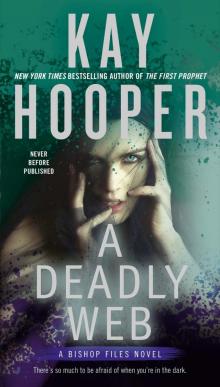 A Deadly Web
A Deadly Web Raven on the Wing
Raven on the Wing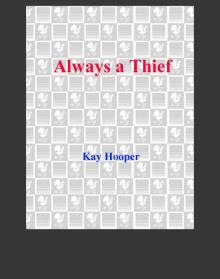 Always a Thief
Always a Thief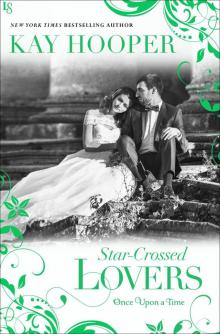 Star-Crossed Lovers
Star-Crossed Lovers Blood Dreams
Blood Dreams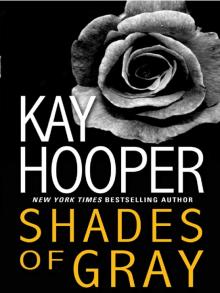 Shades of Gray
Shades of Gray Rebel Waltz
Rebel Waltz Chill of Fear
Chill of Fear Sleeping With Fear
Sleeping With Fear After Caroline
After Caroline Time After Time
Time After Time Haunting Rachel
Haunting Rachel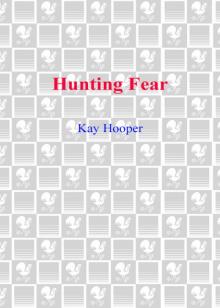 Hunting Fear
Hunting Fear Out of the Shadows
Out of the Shadows Whisper of Evil
Whisper of Evil Blood Sins
Blood Sins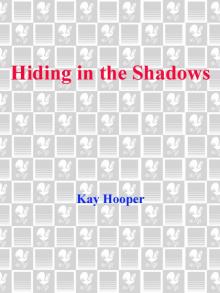 Hiding in the Shadows
Hiding in the Shadows C.J.'s Fate C.J.'s Fate C.J.'s Fate
C.J.'s Fate C.J.'s Fate C.J.'s Fate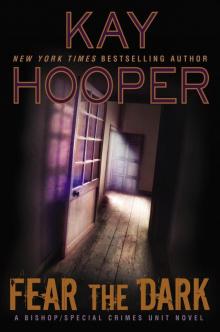 Fear the Dark
Fear the Dark Illegal Possession
Illegal Possession Stealing Shadows
Stealing Shadows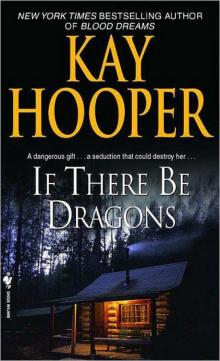 If There Be Dragons
If There Be Dragons Once a Thief
Once a Thief In Serena's Web
In Serena's Web On Wings of Magic on Wings of Magic
On Wings of Magic on Wings of Magic Hostage
Hostage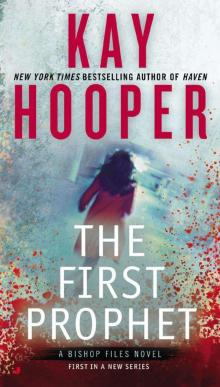 The First Prophet
The First Prophet Through the Looking Glass
Through the Looking Glass Golden Flames
Golden Flames Finding Laura
Finding Laura Haven
Haven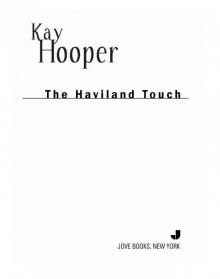 The Haviland Touch
The Haviland Touch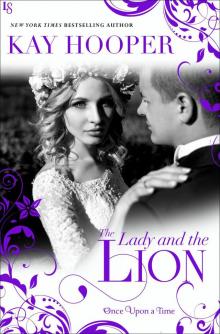 The Lady and the Lion
The Lady and the Lion Haunted
Haunted Velvet Ligntning
Velvet Ligntning Blood Ties
Blood Ties Adelaide, the Enchantress
Adelaide, the Enchantress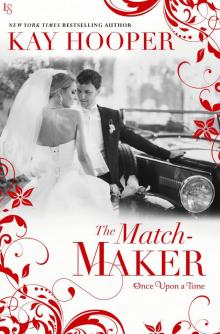 The Matchmaker
The Matchmaker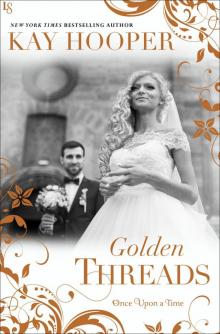 Golden Threads
Golden Threads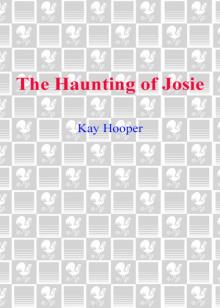 The Haunting of Josie
The Haunting of Josie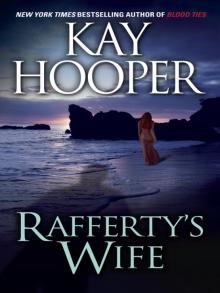 Rafferty's Wife
Rafferty's Wife Amanda
Amanda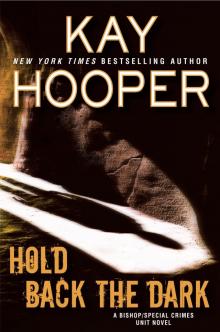 Hold Back the Dark
Hold Back the Dark Sense of Evil
Sense of Evil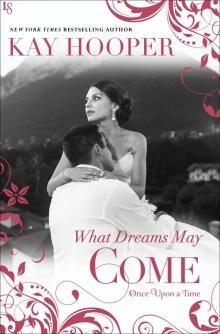 What Dreams May Come
What Dreams May Come Larger Than Life
Larger Than Life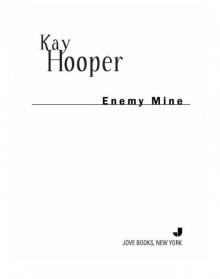 Enemy Mine
Enemy Mine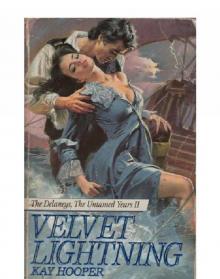 Velvet Lightning
Velvet Lightning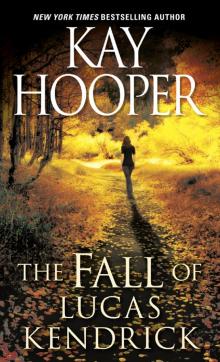 The Fall of Lucas Kendrick
The Fall of Lucas Kendrick Aces High
Aces High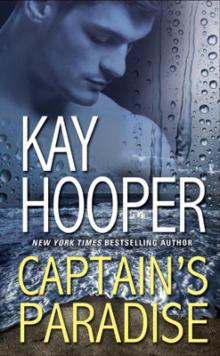 Captain's Paradise: A Novel
Captain's Paradise: A Novel The Wizard of Seattle
The Wizard of Seattle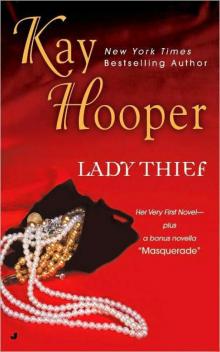 Lady Thief
Lady Thief Summer of the Unicorn
Summer of the Unicorn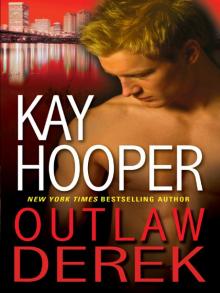 Outlaw Derek
Outlaw Derek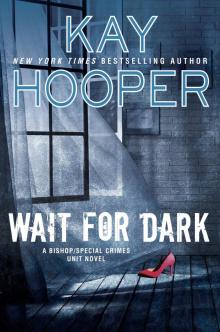 Wait for Dark
Wait for Dark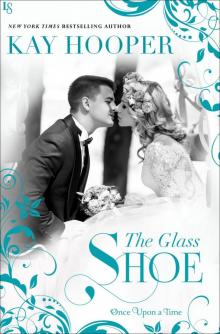 The Glass Shoe
The Glass Shoe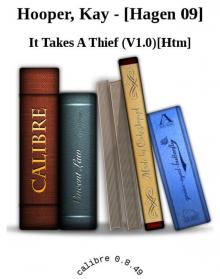 It Takes a Thief
It Takes a Thief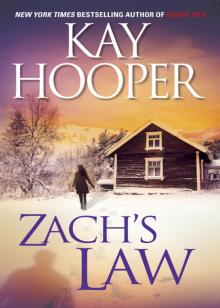 Zach's Law
Zach's Law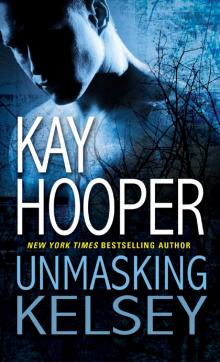 Unmasking Kelsey
Unmasking Kelsey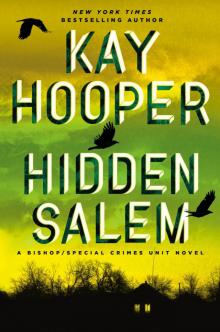 Hidden Salem
Hidden Salem